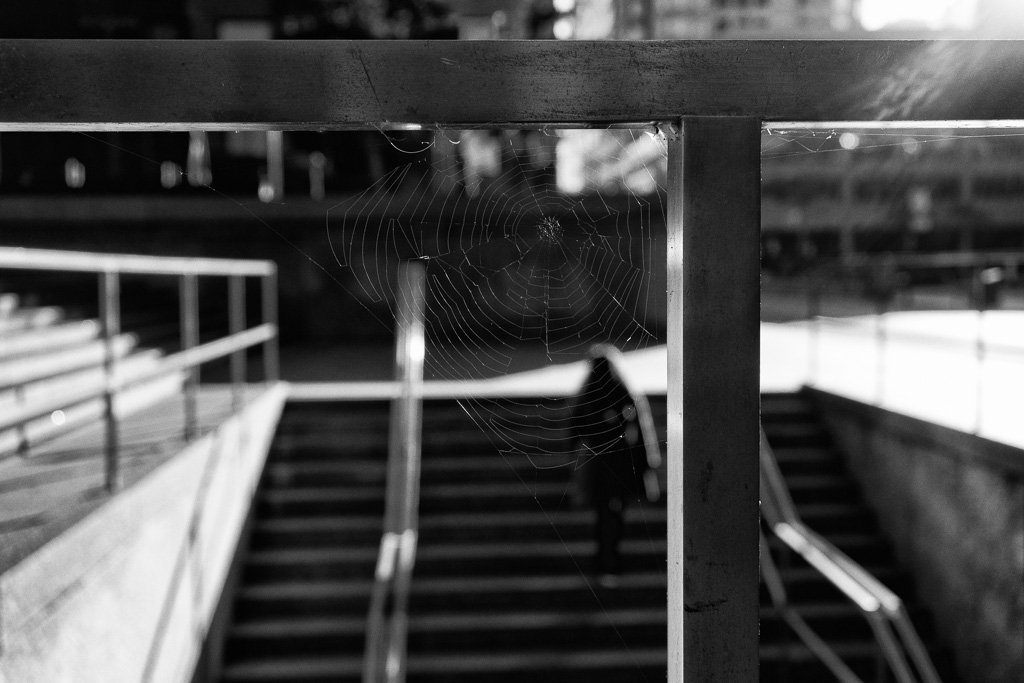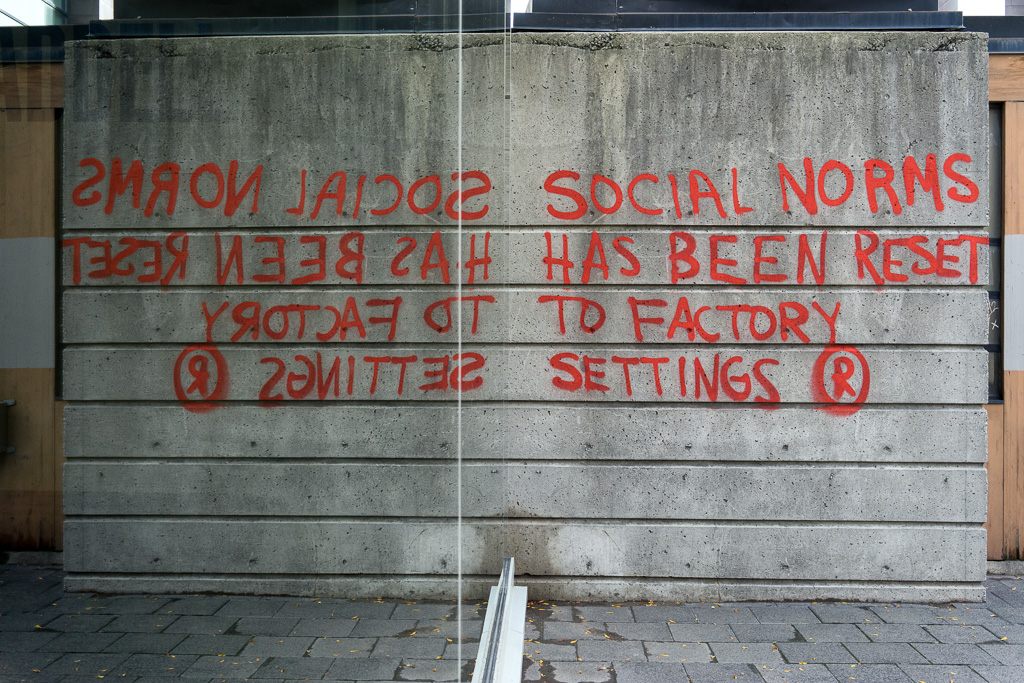After lunch, I ran across the road to get a few things for supper and as I stepped through the entrance to the mall, I noticed an older man lying on the floor stretched out on his side. In particular, I noted his blue mask which gave an odd splash of colour to an otherwise drab scene. There were three people—I think they were all older Asian women—crouched around him, checking to see if he was okay.
Having no medical training, I felt keenly useless in the situation, so walked on by, acknowledging feelings of guilt as I went, acknowledging, too, the obvious source of those feelings. I was raised on a continuous diet of Jesus lore not least of which was the parable of the good Samaritan. And that has been supplemented—at least in my imagination—by what I can only describe as the perverse midrash of Donoghue v. Stevenson (dead snail in a bottle of ginger beer), the seminal case of modern products liability law, in which Lord Atkin posed the fateful question: Who then, in law, is my neighbour? My parents hoped to raise a Samaritan; law school turned me into a pharisaic boob.
Looking back at the man prone by the ATM, I decided to make a compromise between the gospels of love and legalism. While I didn’t provide personal comfort, I didn’t do nothing either. I found a custodian with a radio and got him to call security, and when I was satisfied an ambulance was on its way, stepped into the grocery store to do what I had come to do.
What I observed in my response to an emergency situation was something of a moral laziness which I attribute to the relative isolation I now feel. As much as I want to be the Samaritan who cares about his neighbour, this enforced withdrawal from my neighbours has dulled my senses of empathy and compassion. It’s not as if I’ve chosen to be cold; I simply note that a chill is setting in. Winter is coming.
But I think it’s more than isolation that’s doing it to me. In Henry Giroux’s American Nightmare, he mentions in passing the way in which the contemporary experience of time has been restructured:
Time has become a burden rather than a luxury as more and more individuals lose their ability to think, judge, and embrace time as a space of contemplation. As Johathan Crary points out, “Time for human rest and regeneration is now simply too expensive to be structurally possible within contemporary capitalism.”
The impoverishment of time can be found on the same page of the standard conservative playbook as the call to defund public education. The assault on public education is rationalized by reference to the (unprovable) ideological claim that private institutions are more efficient at bringing their product—whether clothes, bombs, or learning—to market. The practical consequence is that those who cannot afford to move their children from public to private schools (i.e. almost everybody) end up with children who have been denied the basic tools of critical thinking. They become susceptible to the Orwellian doublespeak that has become standard rhetorical practice in the political sphere. But even those children lucky enough to acquire the pedagogical tools of critical thinking cannot use them if they don’t have time for deep thought.

I would go one further and say that a poverty of time makes us unkind. Returning to the scene outside the grocery store, I discover that my behaviour was driven not so much by conflicted feelings about a childhood ethic as by a weirdly self-imposed time pressure. I was on the clock. I had to be efficient. I had to get in and out of that grocery store as quickly as possible and back to whatever I had been doing before I decided I needed spaghetti sauce. The self-imposed time pressure probably goes back to a habit I honed when I practised law. I no longer practise law but the habit persists despite my best efforts to quell it. It is the habit of the time docket. Every hour is divided into six-minute segments and each six-minute segment must be accounted for. It used to be that I rendered my accounts to clients pursuant to the ancient equation: time is money. I don’t have clients anymore, so now I render my accounts to my Id or to my God or to my Wife, all-powerful figures who have a claim on my time. To render assistance. To pause and say a word of comfort. According to the neoliberal faith, these are sinful acts. They breach basic tenets of efficiency and value.
The first time the province of Ontario declared a state of lockdown, back on March 17th, I resolved that, for the sake of my mental and emotional health, I would give structure to my days. Like Benjamin Franklin, I would get up early each morning. I would cook healthy breakfasts. I would make the bed. I would exercise. I would set goals for myself. I would keep the household humming. Now, sitting at the opposite end of the year and again in lockdown, I’m not so sure. How healthy can all this structured time be if it also gives cover to my indifference? I realize the health care professionals say that structuring my days is for my own good, but it wouldn’t be the first time health care professionals had been exposed as shills for the prevailing ideology.
From almost the first day of lockdown, we’ve heard rumblings of an opportunity lurking in the heart of the crisis, the chance for a vast structural reset: establish a universal living allowance, move away from relentless consumption, restore biodiversity to the food supply chain, dismantle social institutions that perpetuate systemic racism, etc. Implicit in these proposed resets is a reset to the way we structure time. The restoration of time—creative time, imaginative time, playful time, flagrantly wasteful time—also restores to us opportunities for empathy and kindness.
While I have no control over whether the world chooses to reset or not to reset, I do have a small measure of control within the personal sphere. This Sunday, at least where I live, people will reset their clocks. My inclination is to throw out the clocks altogether. Since I can’t throw out the clocks and continue to function within my own family, I’ll try a more modest reset. For a little while each day, I’ll refuse to let my clocks have a hold on me. I’ll stare at the clouds and see what messages they have for me. I’ll go for walks in the local ravine and listen to the trees. I’ll lose myself in novels that have no designs on me. Remember to reset your clocks too.

